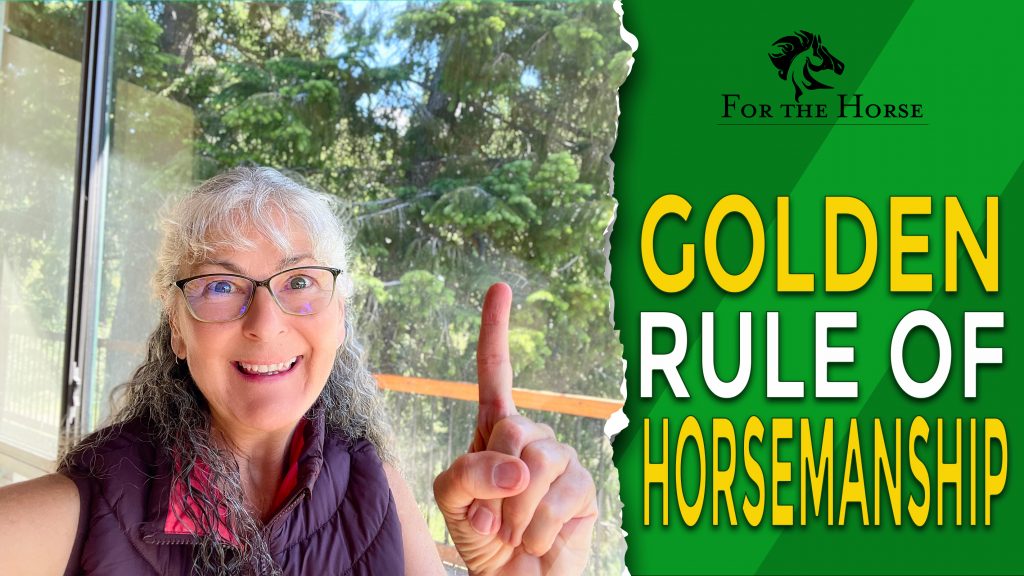There's a very easy way to check if you are making your horse anxious or not, and it's the most important thing to consider when riding your horse...
The Golden Rule of Horsemanship
What does your horse think about it?
Let me explain...
What is the state of your horse at the end of your ride?
Not when you're untacking, taking a saddle off, when you've dismounted, but what is the state of your horse at the end of your ride ... so you're still mounted, you're still sitting, you may be resting.
What is the state of your horse? This is what the anxiety depends on.
We consider the following to be non-negotiable horse care. And here are some questions you can ask yourself when working with your horse:
In our Harmony For the Horse Program we support you with all of these questions and more, so that your horse will be saying,
"Come Dance With Me!"
CLICK HERE to discover more about how we can help you to reach freedom, achievement, oneness and joy that you most seek with your horse.
And now the question becomes, how do you evaluate your horse's state at the end of your ride? There are two components that will help you to evaluate the state of their horse.
Evaluate horse state at the end of your ride.
#1. Have A Process
This is how you can evaluate your horse's state at the end of your ride, with your process.
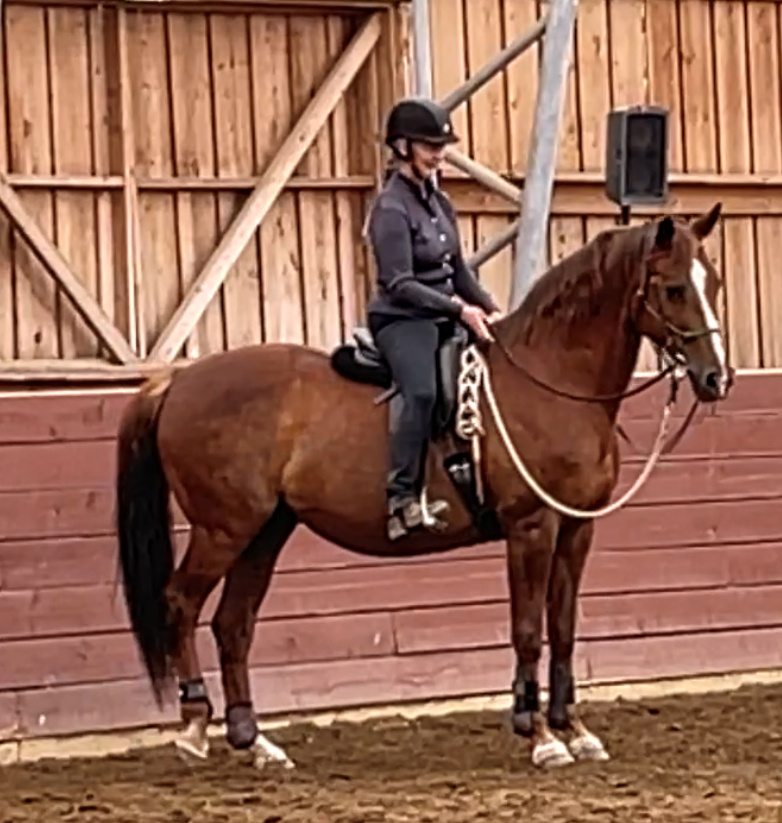
HOW DOES YOUR HORSE FEEL?
Is he feeling as good or better now after the ride, than before the ride happened. That would be positive.
Then you know, what you can reinforce in your training. What you can use again, what you can always come back to.
Or the flip side of it, is your horse feeling worse at the end of the ride than before the ride? Then that would be a negative thing, that would be something that you would definitely would not do again.
Another part of the process is to really know your horse.
Know what your horse considers as a stress, and by that I mean a negative stress.
What does your horse perceive in an anxious way that causes he/she to have anxious behavior?
The flip side of anxiety is excitement. Those are basically the same emotions, just a different perception.
So when you better know your horse, the better you are able to understand this anxiety behavior.
Is my horse just excited, or curious or anticipating what comes and wanting to be with me?
CAN YOUR HORSE MOVE IN ANY DIRECTION AT ANY TIME?
Our goal in horsemanship is that we want to have our horse to be ready and able to move in any direction at any time.
Sometimes they can't. Sometimes they are just not able to. But why???
Maybe it's fear, for some reason, maybe they're fearful of what the rider might be doing next, or what might be coming up next, like fearful of the canter...
"Oh, she's done the walk and the trot, the canter is the next thing."
If there's anxiety around the canter, for example, and they become fearful, it might be that your horse just can't coordinate it. In the same way, maybe they can't coordinate the canter quite yet, as you're asking for it. That may cause anxiety.
So you really need to know your horse, where they're coming from, and what you're asking for, and how that is affecting your horse.
Because the horse really needs to be able to think. If your horse is not able to think, then it's no use going any further.
Sometimes they can't think, sometimes there's something that's distracting them too much, they're not able to think, so how are you going to get them back to you? How are you going to get the mind back to you?
In our Harmony For the Horse Program we support you with all of these questions and more, so that your horse will be saying,
"Come Dance With Me!"
CLICK HERE to discover more about how we can help you to reach freedom, achievement, oneness and joy that you most seek with your horse.
This is part of the whole process of evaluating the state of your horse at the end of your ride.
During your ride, and throughout the ride, you may have these things happen, (and definitely will have these things happen) - a distraction over in the distance, fear from what's coming up next in the ride or fear that they won't be able to do what you ask.
So that affects your horse's ability to think,
If you are not in moving in harmony with your hors, that also affects your horse.
You want to move together. You want to be able to move as one, not as separate beings.
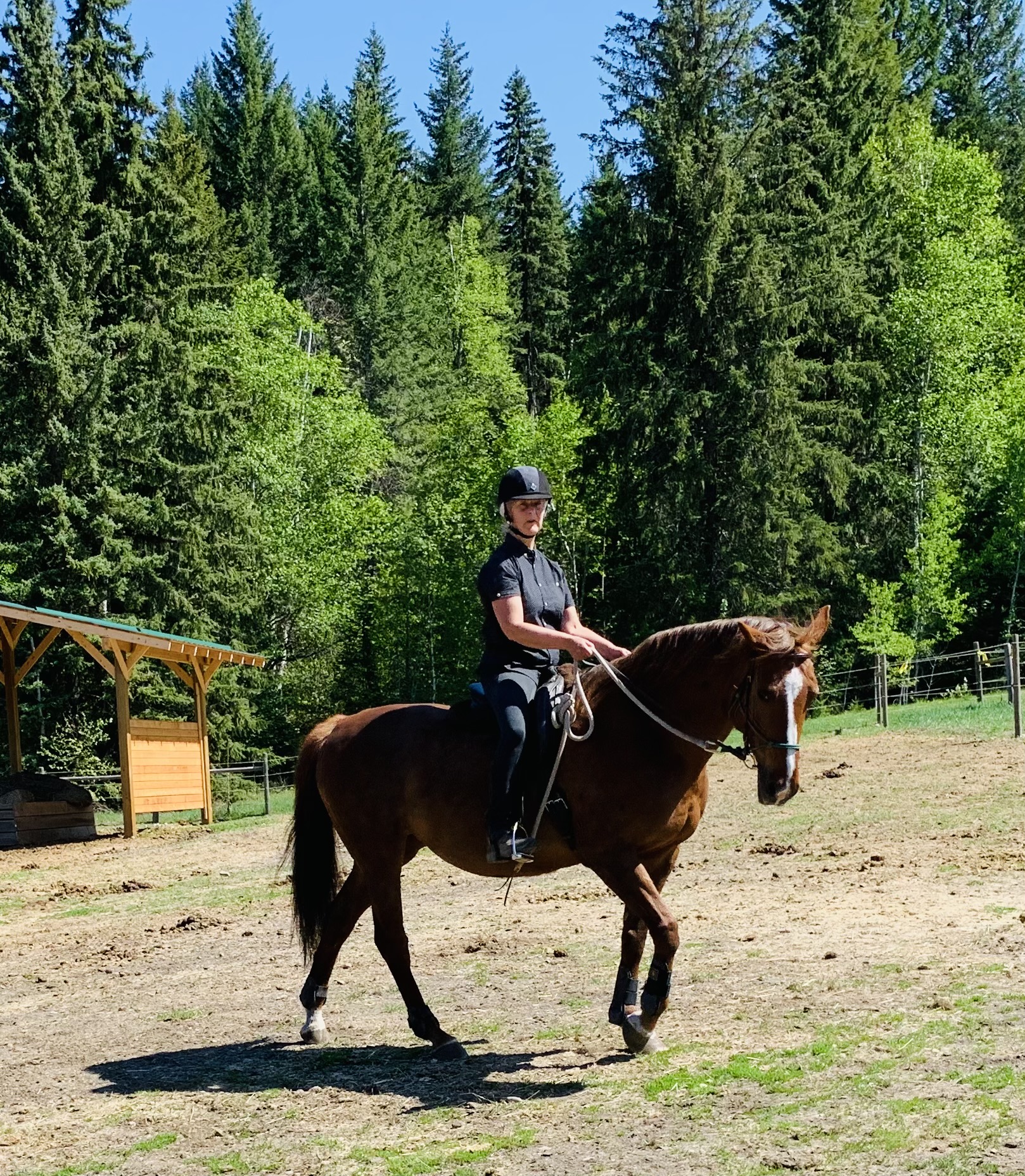


Example...
You're going up a hill on a trail ride, and it's a rather steep hill. But as a rider, you've lost your balance, you haven't moved in your balance place because of the effect of going up the hill. You're moving separately. Does your horse feel that? Yes, you're not moving as one? Would it be better to move as one? Yes. Are you going to lose your balance? Yes. But then what do you do about it?
And this is what we teach in our program, we teach you how to resolve these issues that are happening.
Another example...
Maybe you're working piaffe in the arena, which requires a huge amount of physical effort from your horse.
This is where you need to distinguish, "I need enough energy to get the task done. So is my horse anxious right now because he's not able to coordinate because I haven't done the prior and proper preparation to do the piaffe?"
Or "Is my horse excited and getting himself ready to do the piaffe because he knows what's coming up next?"
There's a fine line between these things.
Evaluate the whole entire ride, evaluate your whole horse, and what your horse says about the ride.
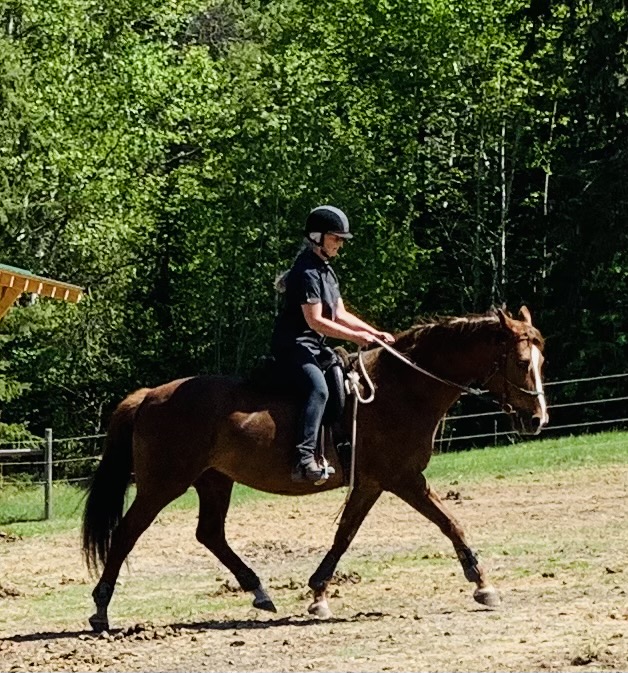


Consideration of the horse so much that your horse still has spirit.
I see so many times that the horses turn into robots, they're basically just turned off.
And sure, that may make it easy for the rider because it's like a push button, robotic horse.
But in our program, we want our process to nurture the spirit of our horses, so that our horses are expecting connection from us, it becomes a well worn pathway, that they are expecting the connection, because they've done it before ... they've connected with us before and we've connected with them.
#2. Know What To Look For And More Importantly, Know What To Feel For
If a rider doesn't know what to feel for, or they don't know how to tap into the kinesthetic sense in a deep way, some horses can get extremely anxious.
But, I believe every rider knows how to feel. But we sometimes have put that in the background because we're working on our computers all day long. Or maybe we have a job that doesn't require us to use our bodies in a way that actually is how we need to use our bodies when we feel our horses.
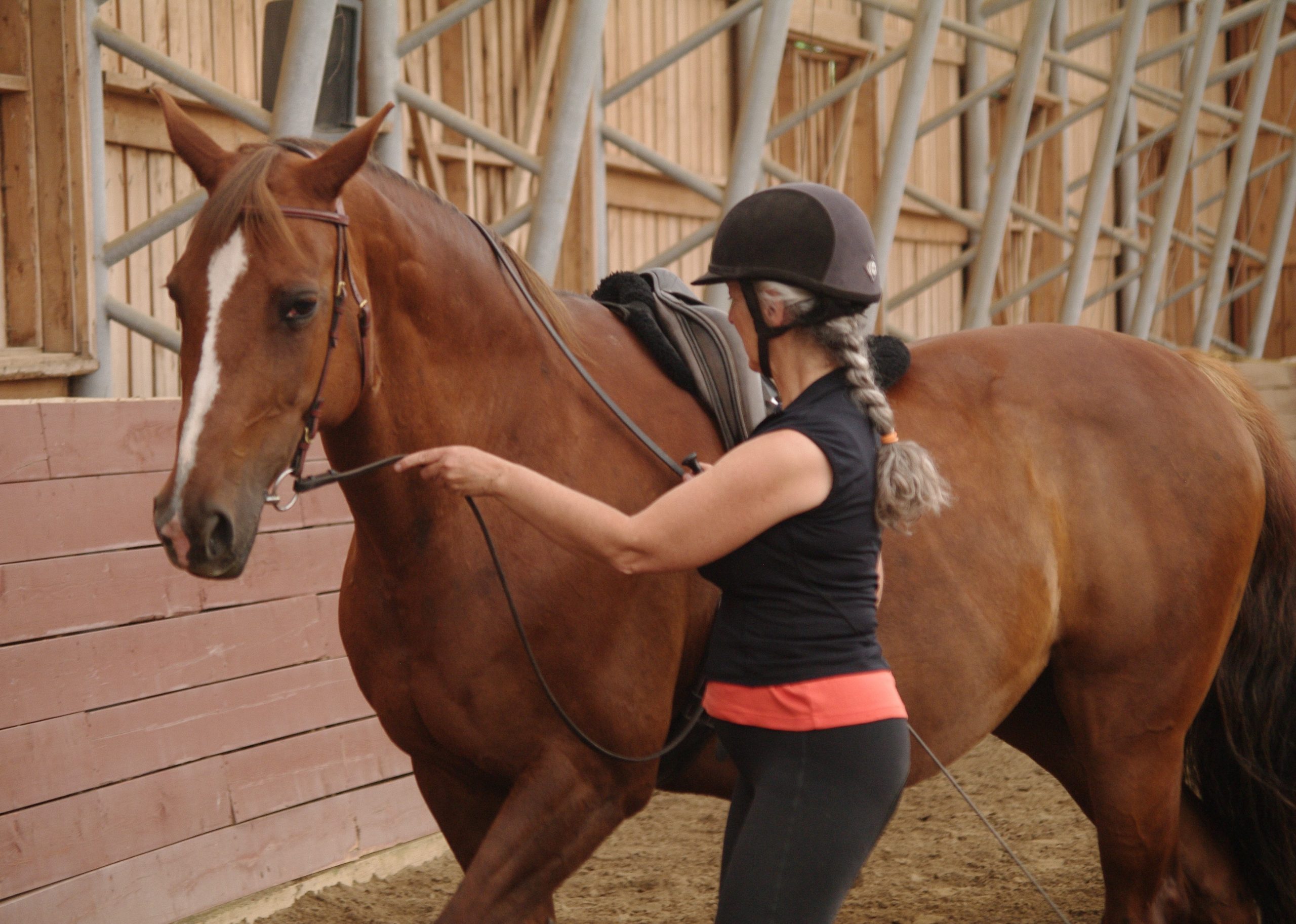


So in our program, we help you to tap into that, we help you to find that path. So you can feel your horse and then problem solve for yourself.
You become empowered when you use this type of knowledge.
When you put your hands on the bridle, the horse will melt and saying, "Okay, yeah, I'm here. I'm ready. And I'm waiting."
This is the step by step process...of awareness and fine tuning.
We do have our visual sense that we, of course, tune in to first. But then there's the other senses like the auditory and the kinesthetic, which are more important than our visual.
For example, what are the footfalls?
But the feeling of what the rider is doing is the most important...f you know the right and the correct feeling that you're looking for.
*Can you feel what the most ideal cadence is for your horse?
*Do you know what it is?
*Can you feel it?
*Is there a difference?
*What's causing the difference?
*Why is that happening?
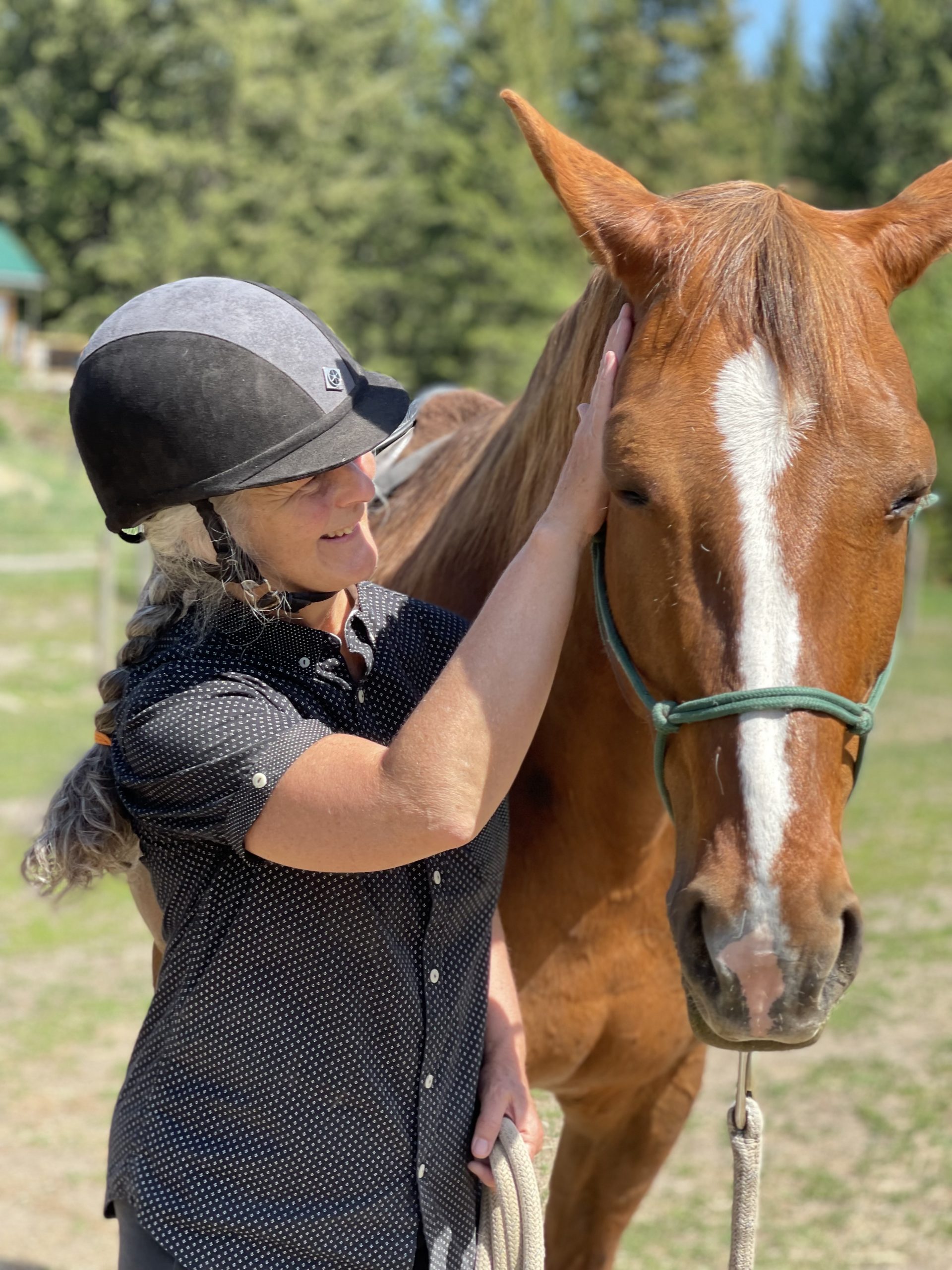


So is your horse ready for you? Ready for more from you ... the next day? ...the next week?
Rather than your horse saying things to like, "I can't believe you because you're _________" or "I can't be your partner, because ___________."
Just take a few moments. From your horse's perspective, if you're asking your horse at the end of your ride.
*What did you think about that?
*What would your horse say back to you?
*Is your horse better in his or her body?
*Or were you just having fun?
*At your horses expense? Maybe?
*Is your horse better in their mind?
*Or were you not having a two way conversation? Maybe?
*Is your horse better in their emotions?
*Or were you not able to discern what we talked about?
And as an added bonus of sharing the enjoyment of the ride and coming to the end of your ride and asking your horse, "what did you think about that?", and your horse answers ...
"That feels amazing. I want to be with you.", the added bonus is your bond deepens, it gets stronger and stronger and stronger as you do this.
If you want the support, to hear what your horse's experience was and share the enjoyment of your ride together so you can get the results that really matter to you, that will create the deepest of transformation in your life and your horse's life...
CLICK HERE to schedule a call with us!
MORE RESOURCES TO HELP YOU BUILD YOUR DREAM HORSE

